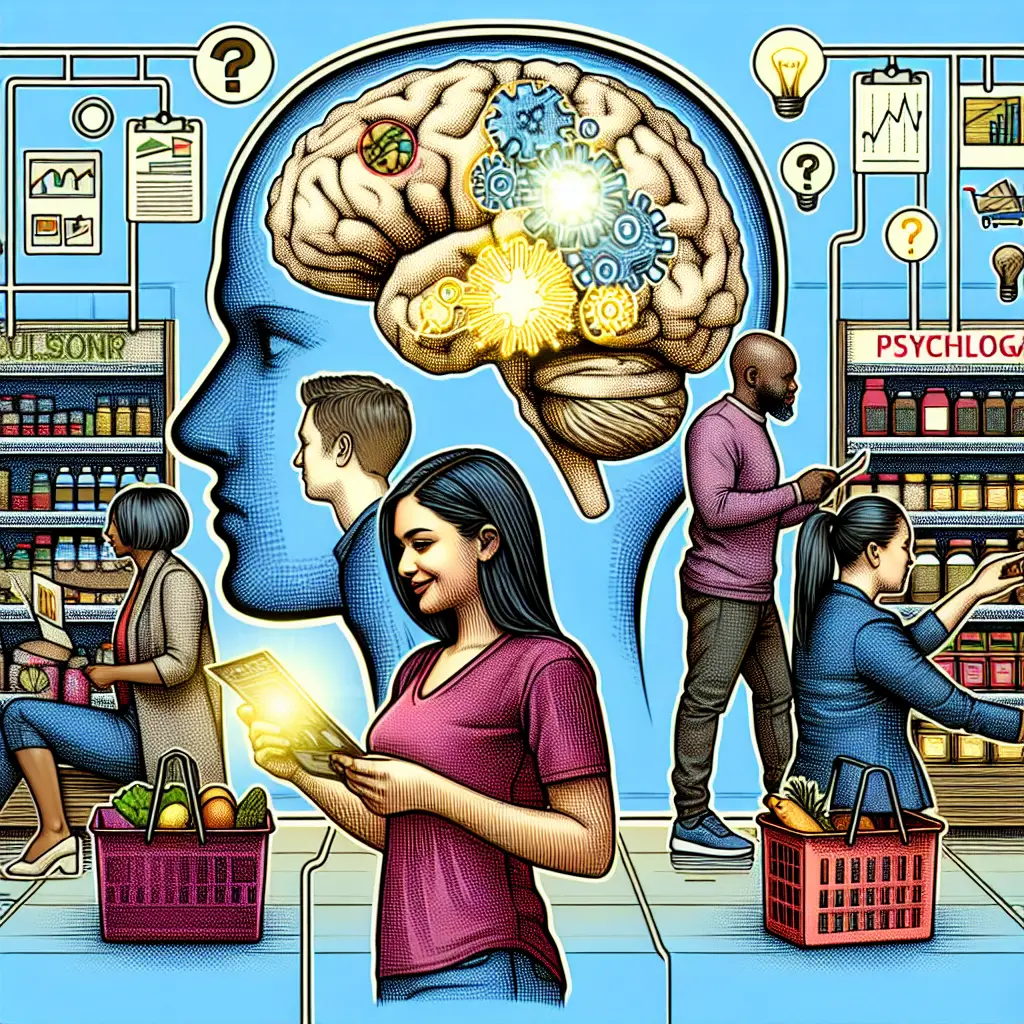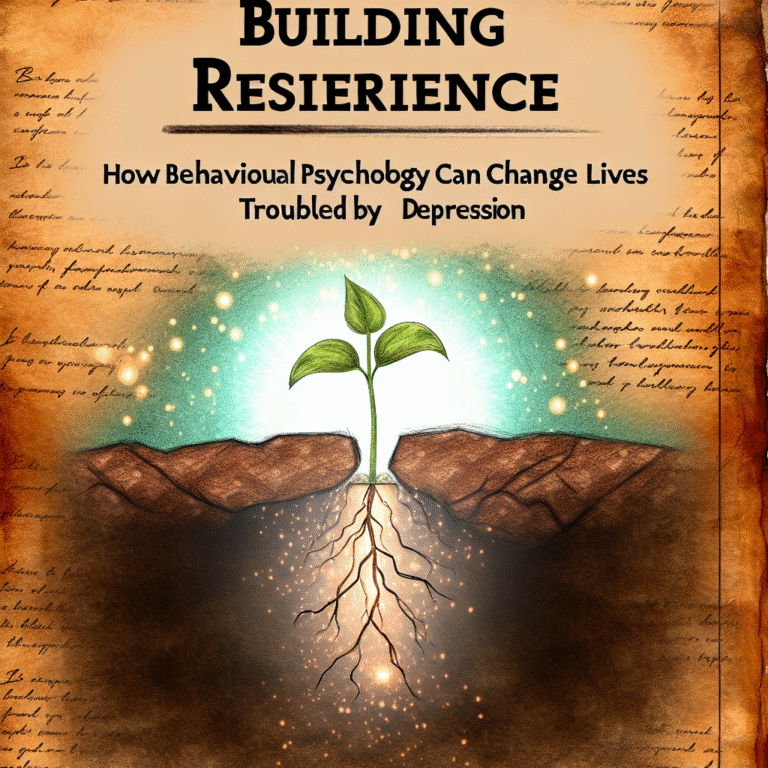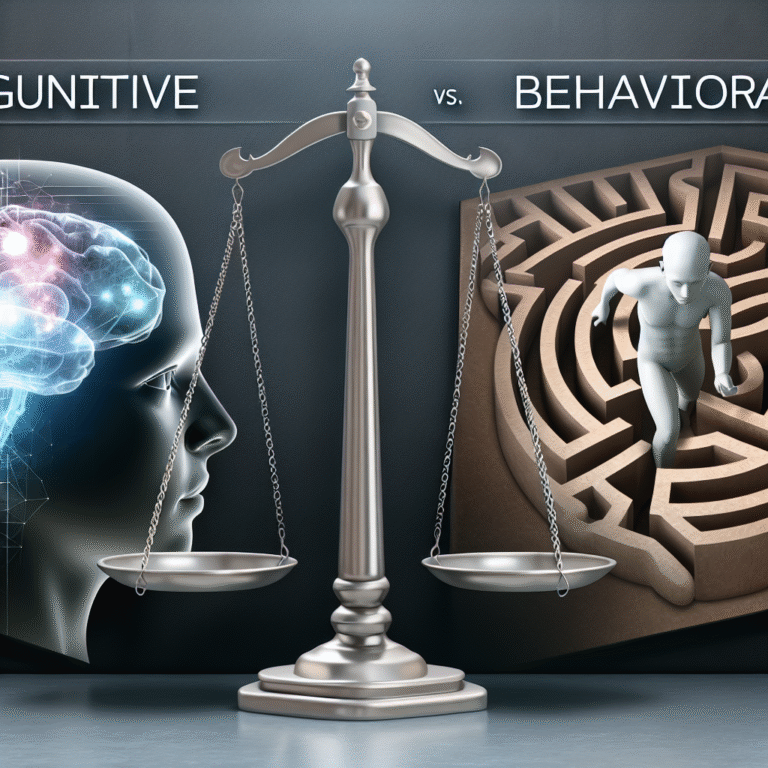
Why We Buy: How Behavioral Psychology Sways Consumer Preferences – The Ultimate Guide to Understanding Consumer Behavior
Introduction
Have you ever wondered why you opted for that particular brand over another, despite similar offerings? This question touches on a remarkable intersection of economics, psychology, and marketing, revealing the intricate ways human emotions and mental processes influence our purchasing decisions. In today’s fast-paced world, where consumers are bombarded with choices, understanding "Why We Buy: How Behavioral Psychology Sways Consumer Preferences" is not just a topic of academic interest; it’s essential for businesses seeking to connect with their audience.
Through the lens of behavioral psychology, we can demystify consumer preferences to uncover patterns, biases, and triggers that drive purchasing behavior. This article aims to provide an in-depth exploration of these dynamics, supported by real-world case studies, actionable insights, and thoughtful analysis of how businesses can leverage this knowledge.
The Foundations of Behavioral Psychology in Marketing
Understanding Behavioral Psychology
Behavioral psychology examines how individual behaviors are shaped by emotional and cognitive processes. These factors play a critical role in how consumers make decisions, including what they buy. Unlike traditional economic models that assume rational decision-making, behavioral psychology acknowledges that many choices are influenced by subconscious preferences, biases, and emotions.
Key Concepts in Consumer Behavior
- Cognitive Dissonance: The discomfort experienced when holding contradictory beliefs or values, which can affect post-purchase satisfaction.
- Anchoring: The tendency to rely heavily on the first piece of information encountered (the "anchor") when making decisions.
- Loss Aversion: Individuals are generally more motivated to avoid losses than to achieve gains, impacting their purchasing decisions.
How Advertising Taps into Consumer Psychology
Emotional Appeals in Marketing
Marketing strategies often rely on emotional appeals to influence consumer behavior. A 2020 study by Nielsen revealed that campaigns with emotional resonance performed twice as well as those that relied solely on rational statements. Brands invoke feelings of happiness, nostalgia, and even fear to motivate purchases.
Case Study: Coca-Cola
Coca-Cola’s “Share a Coke” campaign personalized their product with names on bottles, leading to a significant emotional connection with their consumers. The strategy leveraged the principle of personalization—a technique rooted in behavioral psychology—making them feel special and encouraging on-the-spot purchases.
The Power of Social Proof
Social proof, a principle derived from behavioral psychology, refers to the tendency of individuals to look to the behavior of others when making decisions. This can manifest in various forms, such as user reviews, testimonials, or even celebrity endorsements.
Case Study: Amazon
Amazon effectively uses social proof by displaying product ratings and customer reviews prominently on its product pages. A study demonstrated that products with higher ratings significantly outperformed those with no reviews. By understanding "Why We Buy: How Behavioral Psychology Sways Consumer Preferences," Amazon has created an environment where user-generated content drives sales.
Cognitive Biases That Influence Purchases
The Scarcity Effect
The scarcity principle highlights that perceived limited availability of a product enhances its attractiveness. Products marketed as scarce often encourage quicker purchasing decisions due to the fear of missing out.
Case Study: Supreme
The streetwear brand Supreme has mastered the scarcity effect. By releasing limited quantities of clothing in exclusive drops, they create a hype that drives consumers to purchase immediately, often resulting in swift sellouts.
The Decoy Effect
The decoy effect occurs when the presence of an inferior option influences consumers to choose a more expensive option, which seems more appealing in comparison.
Case Study: The Economist
When The Economist offered three subscription options—digital-only, print-only, and a bundled package—the bundled package was intentionally priced to make it seem superior, driving more consumers towards it. By applying the insights from "Why We Buy: How Behavioral Psychology Sways Consumer Preferences," they effectively capitalized on the decoy effect.
Practical Applications for Marketers
Leveraging Behavioral Insights
There are several strategies businesses can implement to sway consumer preferences based on behavioral psychology:
- Create Emotional Connections: Use storytelling and narratives that resonate with target consumers.
- Utilize Social Proof: Encourage and showcase reviews and testimonials.
- Manage Scarcity: Introduce limited-time offers and exclusive products to stimulate demand.
- Optimize Pricing Strategies: Consider the decoy effect when designing product offerings.
The Role of Technology in Consumer Behavior
Personalization and Data Analytics
Technology has transformed the landscape of consumer behavior. With advanced data analytics, businesses can tailor marketing strategies to individual preferences, often using algorithms to predict potential purchases.
Case Study: Netflix
Netflix employs sophisticated algorithms to recommend shows and movies based on users’ viewing histories. By doing so, they capitalize on the behavioral preference of personalization, significantly increasing engagement and subscriptions.
The Digital Consumer Experience
As more consumers turn to online shopping, understanding the digital environment’s nuances is vital. Factors like website design, ease of navigation, and interactive features can heavily influence consumer preferences.
Case Study: Zappos
Zappos set a gold standard for online retail through exceptional customer service and a user-friendly return policy. Their focus on consumer experience has paid off, establishing a loyal customer base that believes in the brand’s mission to “deliver happiness.”
Integrating Behavioral Psychology with Brand Strategy
Building a Strong Brand
Brands that recognize and integrate behavioral psychology into their strategies can establish more profound connections with consumers. A compelling brand story can solidify loyalty and preference.
Emotional Branding
By associating products with specific emotions, brands can cultivate deeper relationships with their consumers. This emotional branding helps in solidifying consumer loyalty over time.
Case Study: Apple
Apple has built an empire on emotional branding. Their marketing strategies evoke feelings of innovation, belonging, and exclusivity, solidifying a strong brand preference that keeps consumers returning.
Measuring Success: Tools and Techniques
Consumer Surveys and Focus Groups
Understanding consumer preferences requires active engagement and feedback collection. Utilizing surveys and focus groups can develop insights into how behavioral psychology influences purchasing decisions.
A/B Testing for Marketing Campaigns
Implementing A/B tests on various marketing strategies can help identify what resonates most with your target audience. This empirical evidence can inform future campaigns, allowing businesses to refine their methods continually.
Conclusion
Understanding "Why We Buy: How Behavioral Psychology Sways Consumer Preferences" is vital for marketers looking to connect with consumers in meaningful ways. By leveraging insights from behavioral psychology, marketers can craft strategies that resonate on an emotional level, influence decision-making, and cultivate brand loyalty.
The relationship between psychology and consumer behavior is complex, yet it offers incredible opportunities for businesses willing to embrace and adapt. As you reflect on your purchasing habits, consider how these insights could transform your marketing efforts or even your approach to buying.
In the end, whether you are a consumer or a marketer, awareness of the psychological factors at play can empower informed decisions, leading to more satisfying purchases and effective marketing strategies.
FAQs
1. What is behavioral psychology?
Behavioral psychology is a branch of psychology that studies how emotions, thoughts, and environment influence human behavior. It acknowledges that many decisions, including purchasing choices, are influenced by factors beyond rational thought.
2. How can brands effectively use emotional appeals in marketing?
Brands can create emotional connections by telling stories that evoke desired feelings—happiness, nostalgia, or urgency—leading to a stronger consumer response and increased loyalty.
3. What role does social proof play in consumer behavior?
Social proof influences consumer decisions by providing a reference point through which individuals gauge what is appropriate behavior. Positive reviews, testimonials, and recommendations are powerful tools in swaying consumer preferences.
4. How does the scarcity effect work?
The scarcity effect occurs when consumers perceive a product as more valuable due to its limited availability. This perceived scarcity can create urgency, driving faster purchasing decisions.
5. What are some effective strategies for integrating behavioral psychology into marketing?
To integrate behavioral psychology effectively, marketers can create emotional connections, utilize social proof, optimize pricing strategies, and leverage customer data analytics for personalized marketing efforts.
By understanding and applying these concepts, businesses can craft effective marketing strategies that resonate with consumers, ultimately leading to increased sales and enhanced brand loyalty.
















